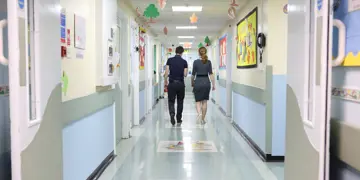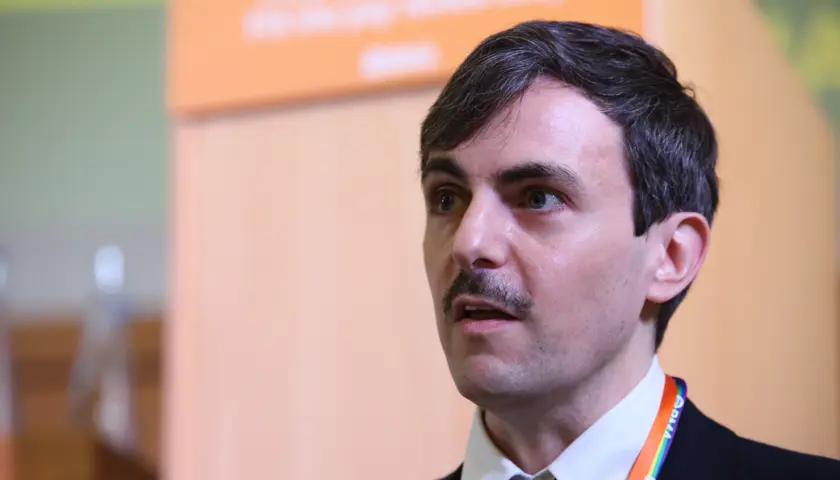Immigration rule reform will affect overseas doctors, says BMA
Immigration rule reform will affect overseas doctors, says BMA
Letter to home secretary outlines critical role played by international medical graduates
The Government must rethink plans to tighten immigration laws, with the BMA warning many proposed reforms will unnecessarily target overseas doctors and the NHS.
The association has warned the Home Office’s White Paper for reforming the immigration system ‘will create uncertainty and anxiety’ among IMGs (international medical graduates) already in the NHS and potentially dissuade other overseas doctors from coming to the UK.
Published in May and titled Restoring control over the immigration system, the proposals set out a raft of measures designed in prime minister Keir Starmer’s words to ‘restore control to our borders’.
These include introducing a new English language requirement for all adult dependants of workers and students, doubling the qualifying period for settlement from five to 10 years and imposing a 32 per cent increase to the immigration skills charge.
In a letter to the home secretary Yvette Cooper, BMA council chair Tom Dolphin emphasises the critical role played by IMG doctors and urges Ms Cooper to meet with him to discuss concerns over the proposed reforms.
Essential labour
He says: ‘We urge the Government to reconsider the proposed immigration reforms, which will create uncertainty and anxiety among international doctors, making it more difficult for the NHS to recruit and retain them.
‘IMGs are essential to the NHS, bringing diverse skills, knowledge and experience to the UK. It is the failure of adequate workforce planning that has resulted in an overreliance on recruitment from overseas, with the latest figures showing 42 per cent of all licensed doctors are IMGs.
‘While the Government is taking steps to address this issue, it is crucial that we continue to support IMGs currently working in the UK and ensure that future IMGs who choose to come here are welcomed and supported as essential contributors to our healthcare system.’
A particular area of concern within the proposed changes includes plans to increase the time period for qualifying for permanent settlement in the UK from five years to a decade.
Additionally, the BMA has expressed concern with plans to implement stricter requirements around English language skills for the family members of international workers.
In his letter to Ms Cooper, Dr Dolphin warns changes threaten to exacerbate a longstanding issue affecting many IMG doctors concerning their ability to bring dependant family members, such as older parents, to live with and be cared for by them in the UK.
He says: ‘The proposed increase in the qualifying time to obtain settlement from five to 10 years will create unnecessary stress and uncertainty for IMGs and their families.
‘It is currently unclear whether the change would apply to those already in the UK, but if applied retrospectively, it would mark an unfair change to existing expectations, significantly impacting doctors, their families and their employers. It could also potentially discourage skilled IMG doctors from coming to or staying in the UK.
‘We are also deeply concerned about the proposed introduction of stricter English language requirements for adult dependants including spouses. The BMA has consistently highlighted the damaging effects of restrictive family migration policies on doctors' mental wellbeing, workforce retention, and their ability to care for dependant relatives.
‘We already know that having moved to the UK, some IMGs can feel isolated from their family and friends and tighter language restrictions will potentially heighten these feelings if they cannot be joined by their family members.
‘Instead of making it more difficult for doctors to care for their elderly relatives whilst continuing to work for the NHS, we urge the Government to remove these restrictions for doctors and their families.’
Financial strain
In his letter, Dr Dolphin warns proposals to increase the immigration skills charge, the fee payable by UK employers who seek to bring in overseas staff, by 32 per cent would heap even greater financial pressure on understaffed NHS trusts and GP practices.
While acknowledging the need to boost the domestic supply of medical graduates, Dr Dolphin insists this required support and investment and that imposing restrictions on overseas recruitment would do nothing to help the NHS and those staffing it.
He says: ‘Tackling the NHS workforce crisis requires effective workforce planning and a dual commitment to both investing in domestic training and retaining international talent by ensuring IMG doctors feel welcomed and supported.
‘This must include tackling training bottlenecks, so UK medical graduates are not left in the unacceptable position of being unable to secure employment after completing their training.’
He added: ‘We must also continue to recognise, support, and invest in our international medical colleagues, who have long sustained the NHS.
‘These doctors bring a wealth of skills, experiences, and cultural insight that enhances patient care and enriches clinical teams across the system.’




